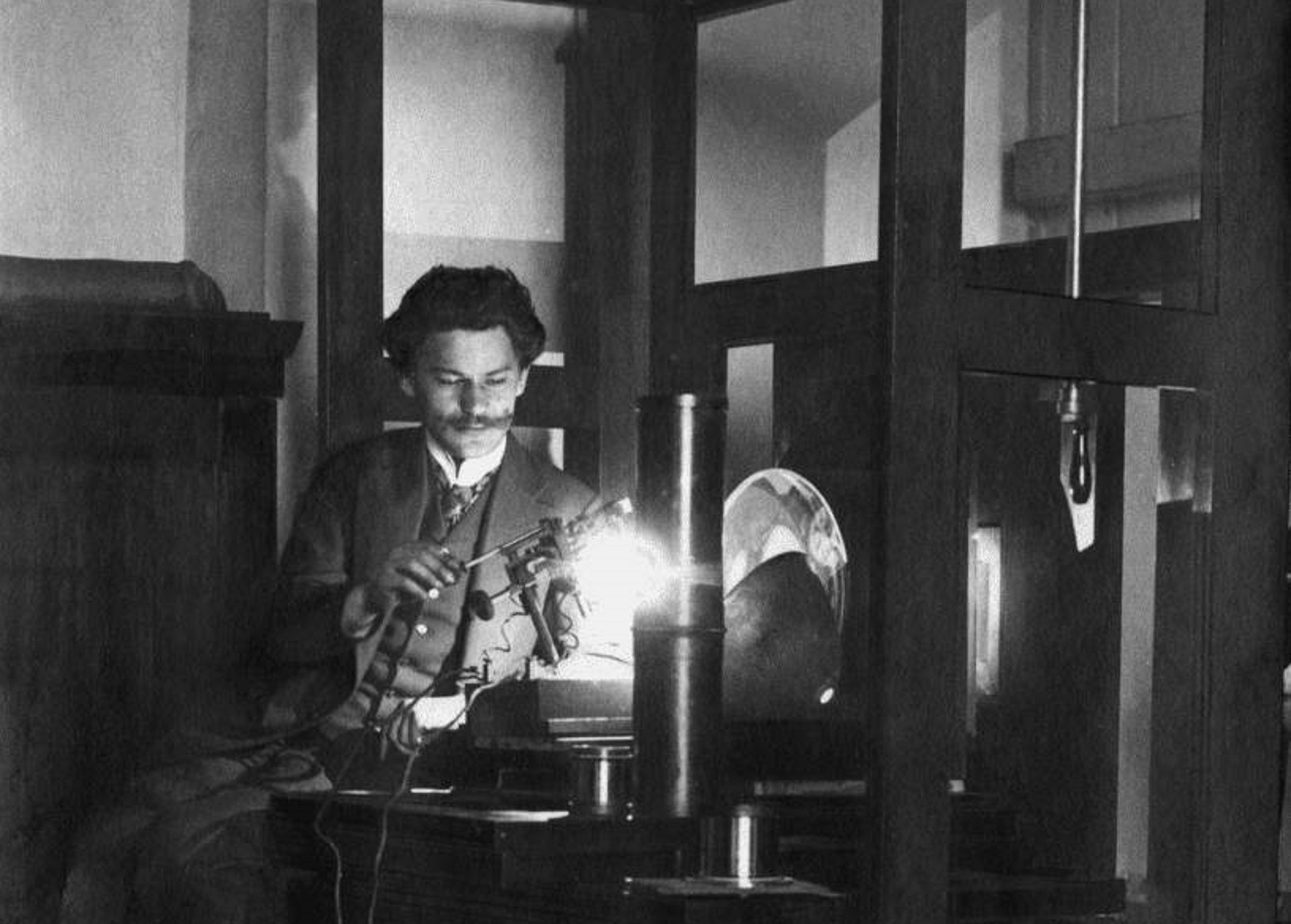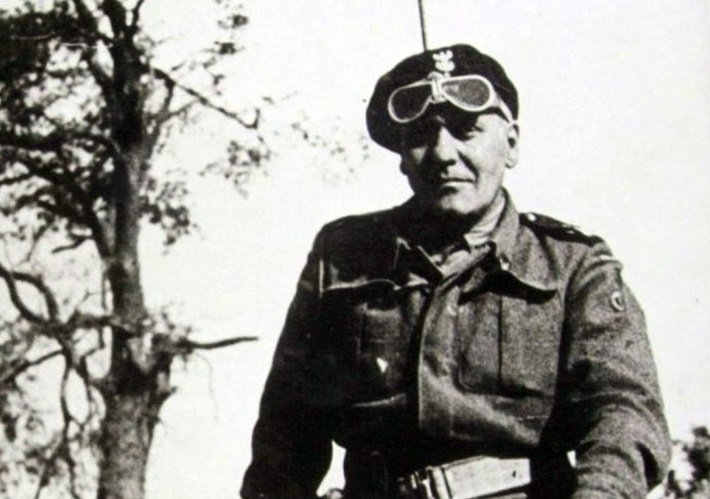[Poland’s] final royal election took place on 7 September 1764 in the village of Wola near Warsaw. In the presence of the Russian military, noblemen convened in the village elected Stanisław Poniatowski to be Poland’s new monarch. Prof. Richard Butterwick-Pawlikowski talks to the Polish History Museum about what happened behind the scenes of the election, and about Poniatowski’s role in history.
polishhistory: Was the event that took place 252 years ago on the election field a coup? The presence of a foreign army would seem to suggest so.
Prof. Richard Butterwick-Pawlikowski: The election itself was not a coup. It was very peaceful, respectful of tradition – and of laws that were in force at the time. However, this peaceful election was the result of not so much a coup, but an internal conflict, if you like – a conflict involving the armed forces of a foreign state.
After the death of Augustus III, the [Polish-Lithuanian] Commonwealth’s main parties were clearly preparing to take up arms against each other. Two political factions were indisputably at the forefront: the “Familia” [Clan], comprising the aristocratic houses of Czartoryski, Poniatowski, Zamoyski and Lubomirski, with the “republicans” on the opposing side, associated primarily with the houses of Potocki and Branicki.
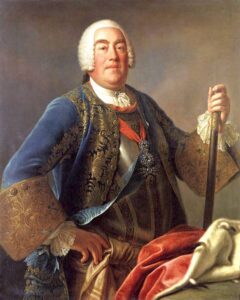
It was also increasingly clear that the neighboring superpowers – Russia, above all – aimed to play a leading role in the forthcoming election. Had foreign intervention been avoided, the republican camp would most likely have prevailed in this civil war. What might that have entailed? Jan Klemens Branicki would have taken the throne as Jan IV. He was an aged and senile man…
However, Empress Catherine could conceivably have endorsed a candidate who had the support of, say, Austria and France. What is more, both those states insisted that the new Elector of Saxony be one of the candidates for the Polish throne – but the Elector died soon afterward. This induced the Russian Army to come to the aid of the Czartoryski family and their allies.
Catherine’s letter to Frederick II, King of Prussia, is well known: in it, the Empress implies that Poniatowski is the weakest candidate for the crown. It thus stands to reason that she should support him.
She obviously wanted to influence him as much as possible. In the event of complications, the Empress was also prepared to endorse Adam Kazimierz Czartoryski. Czartoryski’s father, August Aleksander Czartoryski, was also quite ambitious – mind you, he was Stanisław August Poniatowski’s uncle… But without a doubt, the Lithuanian pantler [Poniatowski, the Great Pantler of Lithuania from 1755 to 1764] was her preferred candidate. If he had not been made king, the Empress would have been furious, and the consequences of her indignation would have been difficult to predict.
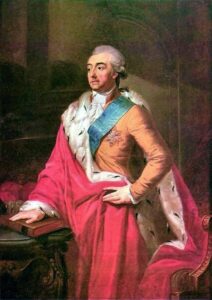
Why had Catherine viewed Poniatowski as the best candidate? It was true that he had a modest fortune of his own – but as far as finances were concerned, he still would have been entirely dependent on his mighty patroness. Without assistance, he certainly wouldn’t have been able to pay for his election campaign. But as matters stood both Poniatowski and other representatives of the Clan received funding from the tsarist treasury.
Did romantic considerations have any impact on Catherine II’s decision?
Not from the Empress’ point of view. But she could have expected that feelings would have mattered for Stanisław Poniatowski. You could not be blamed for having the impression that the new king would harbor a certain sense of gratitude to his former lover.
As it turned out, Catherine II was not entirely successful in her attempt to see through the intentions of the new King of Poland. His determination and perseverance in the task of repairing the Commonwealth (which he initiated) were far greater than the Empress had imagined. He was not your typical wimp, sitting around in Warsaw and distributing offices. Quite the opposite, he was implementing a well-thought-out plan of reforming the country. Very often, though, he had to take two steps back to move one step forward. He was frequently forced to make a tactical concession – but he was a man of extraordinary perseverance. As for the Russians themselves, they regarded Poniatowski as being extremely disapproving of them…
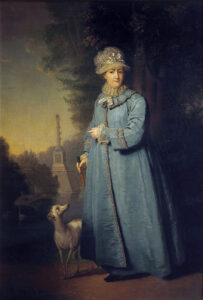
We know that following his election Poniatowski wrote many letters to Catherine II. What image of the Polish monarch emerges from that correspondence?
We are able to get to know Poniatowski’s letters thanks to the excellent scholarly edition prepared by Prof. Zofia Zielińska. The entire correspondence between the two monarchs is exemplarily edited in French, its original language. In the future, it will also be translated into Polish. What image of the Polish king emerges from his letters to Catherine? From about 1793 onwards, the king appears as a determined and sophisticated politician, seeking to use the correspondence to the greatest possible advantage of the Commonwealth. Obviously, the style and form of the letters does not go beyond customary diplomatic courtesy – but a play of interests is evident – with the provision that, when playing this game, Stanisław August was in a much weaker position than the Empress.
In the final years of the Commonwealth, Poniatowski was already a broken man, whose hopes had been shattered. The correspondence we are discussing makes that quite clear.
At the time of his election, how well was Stanisław Poniatowski prepared to take up his role?
He never studied at university. But, paradoxically, his unconventional education ensured that he was extremely well equipped for the task of finding his way in both Polish and international politics. He had been a six-time parliament member, very active in local (provincial) assemblies, in both the Grand Duchy of Lithuania and the Crown [the two parts of the Polish-Lithuanian Commonwealth]. He was well travelled, familiar with the Saxon, Vienna and Berlin courts. He had also visited France, and a number of stately homes of the English aristocracy.

He had several character traits that were extremely useful: he was discerning and capable of achieving the goals he had set himself. For example, he was able to appreciate England’s profound political culture. He had extensive diplomatic practice, having served as secretary to the British ambassador and the Saxon envoy in St. Petersburg, to name but two examples. And he knew how to use this wealth of experience.
As regards being better prepared for the throne, it would be difficult to find an elected King of Poland who would have surpassed Poniatowski in this respect. Jan Sobieski was possibly the only one to have had greater experience on the Polish political scene before having been elected.
Following his election, Poniatowski took the appellation “August.” What is the underlying reference here?
At the very least, several explanations come to mind. One of these would be an attempt, on the part of the king, to reconcile the adherents of August II and III [former Kings of Poland] of the House of Wettin – with those who supported Stanisław Leszczyński. In 1764, Leszczyński was not only still alive, but also keen to have another go at winning the Polish throne.
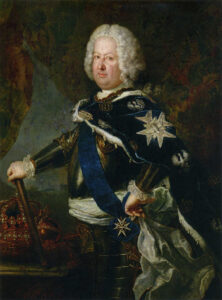
Second, given that Poniatowski’s ancestors on his mother’s side included Giedyminowicze [Lithuania’s royal house], the appellation could have been a reference to Sigismund August, the last king of the Jagiellonian dynasty [a branch of the house of Giedyminowicze].
But the most likely explanation is that, in taking the appellation, Poniatowski was motivated by his personal ambition. An allusion to Roman times was a means of expressing that ambition. It is likely that Poniatowski sought to make an explicit reference to Octavian Augustus, the first emperor of the Julio-Claudian dynasty, who, after a period of civil war, brought peace and prosperity to the Roman world
Stanisław August was crowned in November 1764 in Warsaw. Yet some states were slower than others to recognize the new Polish monarch. Why is that?
That was indeed the case. Stanisław August strove to win that recognition, especially in his relations with France and the Ottoman Empire. It was a bit of an uphill struggle given that, when he was first crowned, Russia obstructed his attempts to establish diplomatic relations with southern states.
In Poland, too, some were a lot less keen than others to recognize the new monarch. Many magnates opposed the king. Some in the Church hierarchy who endorsed the house of Saxon were also sceptical: not least Kajetan Sołtyk, the Bishop of Kraków. But by and large in the first months of Stanisław August’s reign, his relations with former enemies were civil.

Were there any events during Poniatowski’s reign that could have had a particularly strong mental and psychological impact on the king?
In November 1771, he was abducted by the Bar Confederates – that’s one example. Interestingly, the abduction reinforced the king’s belief that he was setting out to accomplish a providential mission. You can see that in royal letters, where the king describes himself as predestined to achieve great things for the benefit of the Commonwealth.
Was Stanisław August a reformer king?
Yes, definitely. Reforms and repairing the state were his life’s mission.
What was his greatest success?
It depends. If we take a really long perspective of several decades, or even look at his reign from the point of view of the present day, we can conclude that his reform of scholarship and the education system played a pivotal role. It was crucial for shaping a new type of citizen – an enlightened patriot. This is the king’s long-term achievement.
Owing to Russia’s efforts and a counterrevolution, the Third of May Constitution did not last. All the same, it needs to be stressed that it had been an excellently thought-out fundamental statute, the best that could have been passed at the time. It ensured that the Commonwealth was extremely well prepared for challenges that would have awaited it in the 19th century, had it not been for… the partitions. The constitution offered an extremely clever take on combining tripartite-system rule with the principle of sovereignty of the nation. The constitution – which, by the way, was written in exquisite Polish – was instrumental in expanding the concept of the Polish nation: in this new, expanded version, the “nation” was taken to mean every resident of the Commonwealth, regardless of their religion, language or social station.
As we all know, the principal author of the Constitution was none other than Stanisław August.
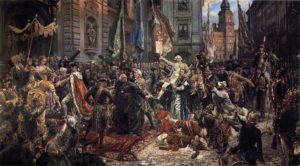
What could be regarded as the king’s greatest failure?
Definitely his abdication in 1795. While his actions can almost without exception be justified as the choice of the “lesser evil,” the abdication cannot be rationalized. In addition, during the 1792 war with Russia, the Commonwealth could have surrendered later, and gone on fighting. It would also have been preferable for the king not to sign the decree concerning the second partition of Poland after the war… But that’s hindsight.
To what extent did the huge royal debt influence the policies of the Commonwealth?
It certainly wasn’t helpful. The king could be blackmailed and threatened, told that his creditors would not be paid. To an extent, debts could have been a factor in his decision to abdicate. But I would not overestimate that issue in earlier years; for instance, during the period of the king’s resistance to the partitions.
You mentioned the war with Russia. There comes a point when the king joins Targowica [confederated Polish noblemen opposed to the Third of May Constitution]. Could he have behaved differently?
I think he could. There is circumstantial evidence pointing to the fact that even the Russian court was surprised that the Poles did not go on fighting.
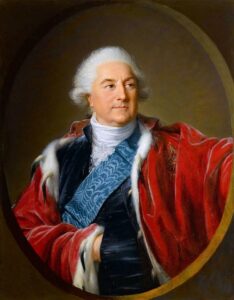
The problem was Stanisław August was intent on being a rightful party in the conflict; he wanted to negotiate in the name of the Commonwealth, monarch to monarch. But Catherine, for her part, ordered him to join the Targowica confederation. Once he did, he was completely marginalized. It is clear, however, that blame for this situation should be laid on traitors who had entered into an anti-constitutional conspiracy in the Crown and in the Grand Duchy of Lithuania.
It is often stressed that Stanisław August was manipulated by Catherine II – though it might be worth asking whether achieving complete independence was feasible at the time. Could we therefore regard him as a victim of his times?
You could say that. Had international relations at the time been more settled, the king would have been remembered as a great patron of the arts, a reformer who rendered great services for his country, and a skilful diplomat. The time of his reign had been a disaster in geopolitical terms. He was unlucky. That said, Stanisław August was a man of his time. He wanted to move with the times, and that wasn’t always possible, given the circumstances.
In my view, it would be wrong to decide once and for all if a given king merits a given standing – in historiography as well as the memory of a nation. Opinion always varies. As it turns out, the more time passes, the fiercer the debate about monarchs. The controversy surrounding Stanisław August is no exception, and I am sure it will not abate anytime soon.

Is there anything we do not yet know about Poniatowski? Are there any blank spots in his biography?
Indeed there are. A quarter of his personal archive, including political as well as private documents, was lost in the 19th century. That collection was most likely lost to flames during the 1870 bombardment of Strasbourg. Today, there is not much you can find at the Poniatowski family archive in France…
Obviously, the king left a vast legacy which still hasn’t been thoroughly examined. It is also open to different interpretations.
We know a great deal about Stanisław August’s reign: this is due to the accounts of tsarist diplomats, which are being investigated by Professor Zielińska and her students. When it comes to demonstrating that the game the Polish monarch was forced to play was extremely difficult, Russian sources are indeed the best. At the same time, his extreme perseverance in his efforts for the benefit of the country are also evident.
What would be your assessment of Stanisław August?
For a historian, Stanisław August can be “annoying.” The king clearly has a tendency – not just in his memoirs, but also in correspondence – to constantly justify his actions to posterity. He must have known that future generations would judge him harshly, and so he was keen to explain his motivations. You can understand this kind of attitude, but it does get somewhat tedious if you are a scholar…
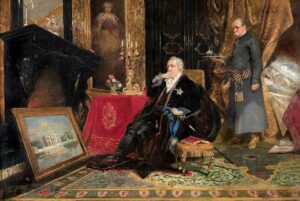
Looking back, you could also agree that Stanisław August was too willing to make concessions. Had he really known how firm Catherine II was, and had he been aware that she was never really interested in strengthening the Polish-Lithuanian Commonwealth, he might have realized (after 1792, at least) that continuing the politics of acquiescence towards Russia would not benefit Poland in any way.
However, it would be a mistake to call the king’s good intentions into doubt. Almost until the end of his reign, he always did what he judged to be in accord with the Polish raison d’état; he subordinated Poland’s cultural politics to the policies of the state. He was persistent, believed in the vision he had for the country and in the goals he had set himself. He was entirely dedicated to the task of repairing the Polish-Lithuanian state.
Prof. Richard Butterwick-Pawlikowski read History at Queen’s College, Cambridge. He lectures at the School of Slavonic and East European Studies at University College London. He specializes in the history of the Polish-Lithuanian Commonwealth and the Polish-Lithuanian lands under partition. His research interests also focus on issues pertaining to the Enlightenment and anti-Enlightenment, relations between the state and the Catholic Church at the turn of the 18th century, the history of the Great Sejm, as well as Stanisław August Poniatowski, Primate Michał Jerzy Poniatowski and their views. His books include Poland’s Last King and English Culture: Stanisław August Poniatowski 1732–1798 (1998). His book Polska rewolucja a Kościół katolicki 1788-1792, published by the Polish History Museum in conjunction with the publisher Arcana (abridged as The Polish Revolution and the Catholic Church, 1788–1792, Oxford 2012), received recognition as the first full monograph on the Great Sejm.
Interviewer: Waldemar Kowalski
Translation: Alicja Rose & Jessica Sirotin


